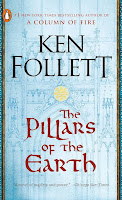Pages
Wednesday, July 30, 2025
Love, Part Three
Tuesday, July 29, 2025
Love, Part Two
Yesterday, I looked at love and what the Bible says about it. Today, I look at what AI says.
From AI, 7/20/2025
The Bible defines love, particularly in the New Testament,
as a selfless, sacrificial, and enduring commitment that seeks the
well-being of others, often referred to as agape love. It's not simply an
emotion but a choice to act in ways that benefit others, even when it's not
reciprocated or convenient.
Here's a more detailed explanation:
The Bible often uses the Greek word "agape" to
describe God's love, which is unconditional, sacrificial, and extends even to
enemies.
- Not
Just Feelings:
While feelings can be a part of love, biblical love goes
beyond emotions. It's a deliberate choice to act with kindness,
compassion, and generosity, prioritizing the needs of others.
- 1
Corinthians 13:
This famous passage describes love as patient, kind, not
envious, boastful, arrogant, rude, selfish, irritable, resentful, rejoicing in
wrongdoing, but rejoicing in truth, enduring all things, believing all things,
hoping all things, and bearing all things.
- Sacrificial:
God's love, as demonstrated through Jesus, is sacrificial,
giving even when it costs dearly.
- Love
for God and Others:
The Bible emphasizes loving God with all your heart, soul,
and mind, and loving your neighbor as yourself, highlighting the importance of
both a vertical and horizontal expression of love.
- Love
is an Action:
Love is not passive; it is an active force that
motivates actions of kindness, forgiveness, and compassion.
- Love
is a reflection of God's nature:
Because God is love, love is a core aspect of His character
and a defining trait of those who follow Him.
I must say, I'm impressed with AI's summary here.
Monday, July 28, 2025
Love, Part One
Friday, July 25, 2025
The Hobbit (J.R.R. Tolkien)
Wednesday, July 23, 2025
Pillars of the Earth & World Without End (Ken Follett)
Sunday, July 20, 2025
Daredevil: Know Fear
Saturday, July 19, 2025
Superman (2025)
Friday, July 18, 2025
Monopoly: Pokemon Edition
 |
| game contents; image from here |
Thursday, July 17, 2025
Shouldering a Burden
Tuesday, July 8, 2025
Lila (Marilynne Robinson)
Wednesday, July 2, 2025
The Bruised Reed (Richard Sibbes)
a bruised reed he will not break,What do these words mean? A bruised reed is one who "is sensible of sin and misery . . . and, seeing no help in himself . . [turns] to Christ." Similarly, a smoldering wick [or smoking flax] is he who sees a spark of Christ's work in him, yet also much smoke [sin] that remains. In both cases, these are those who understand they bring nothing to God; that our hearts are wicked, even our righteous deeds are filthy, and thus can only cry 'be merciful to me a sinner.'
and a smoldering wick he will not quench,









